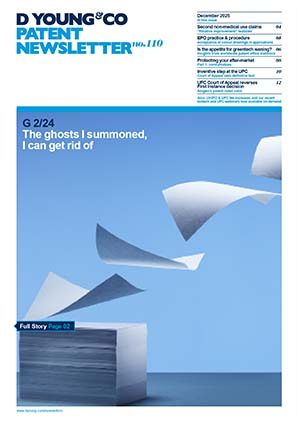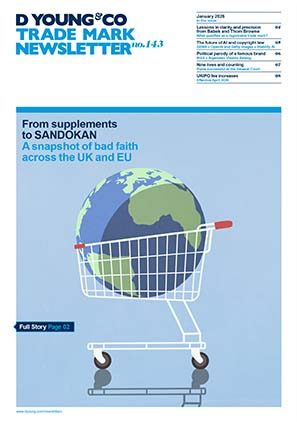On the trail of confidential information
In a recent decision HHJ Hacon has considered the interplay between the equitable duty of confidence under English law and the new EU Trade Secrets Directive (Directive (EU) 2016/943) in an intellectual property law context. Ultimately, the judge held that franchisee travel consultants who used their previous client lists in new jobs were in breach of implied terms of their employment contracts and equitable duties of confidence which were owed to their former employer, Trailfinders, and had committed unlawful acts under the Trade Secrets Directive. Independent travel company Travel Counsellors (TCL) was also found to have breached its equitable obligation of confidence to Trailfinders.
Background
The claimant, Trailfinders, alleged that its former sales consultants, Mr Bishop and Mr La Gette, took client information from its customer databases during the course of their employment and after they left to join Travel Counsellors (TCL), and as such were in breach of implied terms of their contracts of employment and of their equitable obligations of confidence.
TCL, which trades under a franchise model with self-employed travel consultants, was also alleged to be in breach of confidence through having received the confidential information and allowing the information to be used for its benefit.
Liability of Trailfinders’ former employees
As employees of Trailfinders, Mr La Gette and Mr Bishop owed an implied contractual duty not to misuse their employer’s confidential information, and an equitable duty of confidence to Trailfinders.
The judge quoted the leading case of Faccenda Chicken Ltd v Fowler, stating that the extent of the contractual duty of confidence depends on the nature of the information involved. The case distinguishes between three classes of information:
- class 1 information which is not confidential;
- class 2 information that is obtained during the normal course of employment, remains "in the employee’s head" and becomes part of the employee's experience and skills; and
- class 3 information comprised of specific trade secrets (which under English law, is given a narrow definition).
Interestingly, Judge Hacon noted that the broad definition of "trade secrets" contained in article 2(1) of the new EU Trade Secrets Directive is the best guide to use when distinguishing between information which is not confidential (class 1) and information that is confidential (classes 2 and 3).
Trailfinders’ client information was considered to fall within the category of class 2 information, for which the duty of confidence ends at the termination of employment, albeit that there may still be a finding of liability if employees acted in breach of the implied terms of their employment agreement in relation to such information, while still employed. The information consisted of names, contact and booking details of Trailfinders’ customers, including their email addresses, telephone numbers, budgets and travel preferences.
While employed at Trailfinders, the defendants accessed and compiled the information on the company’s databases. Mr La Gette printed and wrote down some of this information on the last day of his employment and subsequently sent it to TCL. In similar vein, Mr Bishop started assembling a contact book about six months before leaving Trailfinders. After leaving Trailfinders, both defendants also accessed their former employer’s online databases, retrieving further client information.
The court found that Mr La Gette and Mr Bishop breached their implied duty of confidence as the act of deliberately copying client information took place whilst they were still employed by Trailfinders.
The defendants were also found to have breached their equitable obligation of confidence, in particular in disclosing the information to TCL and subsequently using the information themselves. The judge held that they either appreciated, or ought to have appreciated, that the client information was confidential. Whilst the equitable obligation does not extend to information forming part of an employee’s experience and skills acquired during the normal course of their employment, this exception does not include information deliberately memorised.
The defendants alleged that much of the information they copied was accessible in the public domain. However, such arguments are not a valid defence to allegations of breach of confidence: the judge noted that Mr La Gette and Mr Bishop saved a significant amount of time and effort after their employment with Trailfinders ended by obtaining the information from sources available to them from their previous workplace. They did not attempt to retrieve the information from publicly available sources.
The court also found that both defendants had been in breach of articles 4(2) and 4(3) of the EU Trade Secrets Directive.
TCL’s liability
HHJ Hacon also considered that TCL owed an equitable obligation of confidence to Trailfinders and under article 4(4) of the Directive. In particular he concluded that TCL knew or ought to have known that the information they received from Mr Bishop and Mr La Gette was fairly and reasonably regarded as confidential.
During the recruitment process TCL had been aware that Mr Bishop and Mr La Gette were employees of Trailfinders. TCL also did not supply new franchisees with potential customers, as they were expected to bring their own customer contact list. While TCL stated that it expected new franchisees to respect agreements with their former employers, their telephone records include statements made by Mr La Gette to the effect that he would be bringing contacts from Trailfinders, and he was not discouraged from doing so.
TCL also maintained that its own client lists were confidential; as such, the judge considered it highly improbable for TCL to believe that Trailfinders did not consider their equivalent information confidential. On the balance of probabilities, it was found that potential franchisees of TCL were encouraged to bring details of their existing clients with them and were not dissuaded from doing so on the basis of possible breaches of confidence.
Comment
The judgment confirms the legislator’s view that the substantive principles governing the protection of confidential information under English law are unaffected by the new Trade Secrets Directive, albeit that the latter “shines an occasional light on those principles”.
The decision also helpfully consolidates much of the existing law on breach of confidence, exploring the extent and duration of the implied contractual and equitable duties of an employee.
The judgment also discusses the possibility of information already being available in the public domain, explaining why this will not provide a sufficient defence to employees minded to "take a short cut" in their new jobs, by copying such information held by their previous employer.
Jurisdiction: England & Wales
Decision level: IPEC
Parties: Trailfinders Limited v Travel Counsellors Limited
Date: 12 March 2020
Citation: [2020] EWHC 591 (IPEC)



